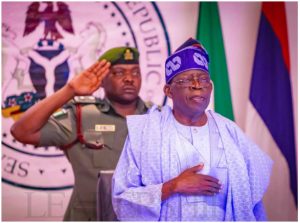The Impact Of BRICS Nations On Africa

Brazil, Russia, India, China, and South Africa are the countries represented by the abbreviation BRICS. It is a collection of five large rising economies from various parts of the world that have joined forces to establish a powerful global politics and economics bloc.
The term “BRIC” was first coined by economist Jim O’Neill in a 2001 report titled “Building Better Global Economic BRICs.” He used the term to refer to the four emerging economies of Brazil, Russia, India, and China, which he believed would play a significant role in the global economy in the coming years. South Africa was later added to the group in 2011.
Africa has been significantly impacted by the BRICS nations both politically and economically, and their influence has both advantages and disadvantages for the continent.
The economic impact of BRICS nations on Africa
The economic effects of BRICS on Africa have been significant. Through trade, investment, and development assistance, these nations have increased their involvement in Africa’s economic growth. The BRICS nations have been considering trading partners for Africa, with China as the trading partner for many African countries.
China has made significant investments in infrastructure projects in Africa, including ports, railroads, and highways, which have boosted commerce and economic development.
Concerns over the viability of debt and potential dangers to African economies have also been highlighted by the BRICS countries’ growing presence in Africa. To fund infrastructure projects, certain African nations have taken out substantial loans from China, raising questions about the sustainability of their debt and the possibility of financial crises.

Political Impact
The BRICS nations have significantly impacted African politics. They have been instrumental in reshaping the political landscape globally, and their rising presence in Africa has altered the political climate of the continent.
For instance, the BRICS nations have contributed to peacekeeping operations in Africa, with South Africa being a key player in the Democratic Republic of the Congo. Almost 2,500 Chinese peacekeepers are now deployed in Africa as part of China’s involvement in African peacekeeping efforts.
The global governance challenges of climate change and the reform of international financial institutions have also been addressed by the BRICS nations. They have pushed for a more just system of global governance that better represents the needs of developing countries, such as those in Africa.
Challenges
Despite the advantages the BRICS nations have brought to Africa, there are drawbacks to their expanded presence in the region. The possibility of resource exploitation and environmental harm is one of the major obstacles. Chinese businesses, for instance, have been mining minerals and other natural resources in Africa, raising concerns about ecological damage and resource depletion.
Another difficulty is the possibility of heightened competition with established donors like the US and EU, who might feel threatened by the BRICS countries’ expanding influence in Africa. This can result in a decrease in aid and other forms of assistance to African nations.
Conclusion
The BRICS nations have had a vast political and economic impact on Africa. Even though their engagement has created chances for economic growth and development, it has also sparked worries about resource exploitation, the sustainability of debt, and rivalry with traditional donors. To ensure that they can maximise the benefits while limiting the hazards, African nations must carefully manage their connections with the BRICS nations.







